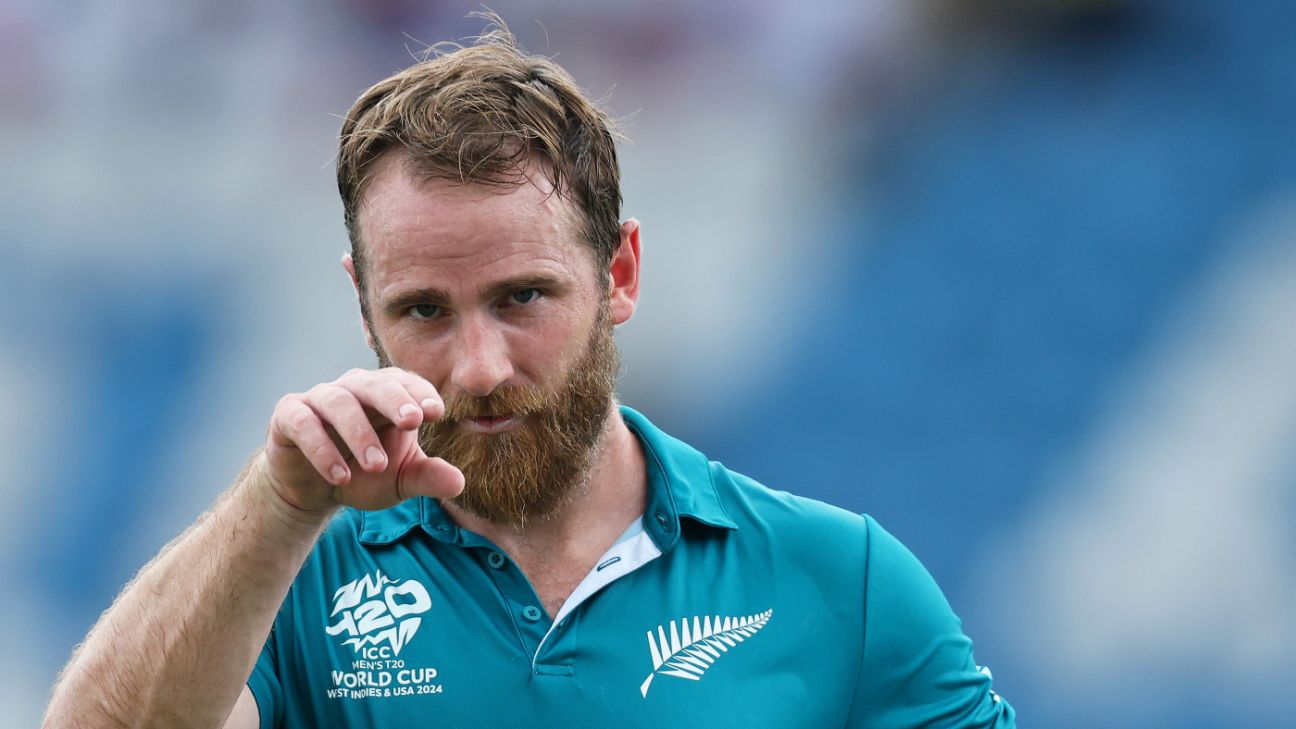He also confirmed his participation in the SA20 in January, though his “absolute priority” is still playing for New Zealand
ESPNcricinfo staff
Kane Williamson has confirmed that the SA20 will be his destination in January, after he declined a New Zealand central contract for the 2024-25 season, but added it was no indication that his international career was nearing an end.
Williamson stressed that it was NZC’s rules around player availability to be eligible for a contract – they have to play Super Smash if not on international duty – that led him to make the decision, and that he remains committed to New Zealand outside of heading to South Africa.
It could be that the only international cricket he misses is three ODIs and three T20Is against Sri Lanka, although Stuff reported there was some doubt over his participation in the one-off Test against Afghanistan in September. Williamson will play the WTC series against Sri Lanka and India away, the three-match home series against England, and then make an ODI trip to Pakistan ahead of the Champions Trophy in February.
“There’s a number of great competitions on during that time, but SA20 looks really exciting,” Williamson told reporters on his return to New Zealand after the T20 World Cup. “Unfortunately, it meant turning down a central contract, however my priority still is, absolutely, playing for New Zealand. Think I miss maybe a handful of games over a three-week period.
“It’s simply the contract, the rules that currently exist meant I wasn’t able to have one but in terms of playing for New Zealand I’m not missing almost any cricket really, so that was important to me.”
In terms of how far Williamson’s international career extends, the Dominion Post reported that he and NZC CEO Scott Weenink had discussed the 2028 T20 World Cup to be staged in New Zealand and Australia when he would be 38. Publicly, Williamson remained coy although acknowledged major events and series – such as the Test series in Australia in 2026-27 – remained on his radar.
“I want to play as long as I can,” he said. “I’ve really, really enjoyed my time captaining and it’s been a privilege and an honour to do that for a number of years. I’m excited with what’s next for the team in terms of the leadership as well and looking forward to being part of that.
“In terms of a timeframe, it’s difficult to say. Want to keep being fit, doing as well as I can, keep trying to improve. That [2028] is a number of years away and it’s a year at a time. All major events and key series are things that whet the appetite and are an exciting prospect. They are down the line. Managing my time as well as I can after doing it for so many years is important and I know New Zealand Cricket are really supportive of that.”
Williamson added that he was keen to continue international cricket across three formats, although his T20 spot may come under scrutiny as the team rebuilds from their group stage exit in West Indies.
“Naturally after major events there are always different decisions that are made and you are always looking to bring different players through, but being part of this team is so dear to me and I want to remain in that community as long as I can, and as long as I’m offering value,” he said.
Meanwhile, Weenink said that the casual playing arrangement afforded to Williamson would only be offered to a handful of senior players, citing Trent Boult, who opted out of a central contract in 2022, and Tim Southee as others who had earned that option. However, Test captain Southee is expected to be on the next contract list.
“Those guys have certainly earned the right to be treated in a certain way, in that we want to try and prolong their careers,” Weenink told the Dominion Post. “If we had a hard and fast rule around certain players like Kane Williamson, we would lose him to playing for New Zealand earlier than we would need to.
“That casual contract is not going to be offered to everyone and going off contract is pretty risky. There’s a lot of advantages to being on a New Zealand central contract and we will be prioritising the players who are centrally contracted.”

